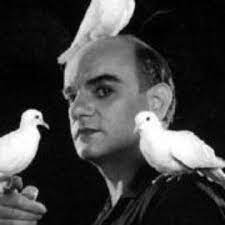It's All In The Style
- Mitch Hampton

- Feb 1, 2022
- 6 min read

"I am not saying that a work of art creates a world which is entirely self-referring.
Of course works of art (with the important exception of music) refer to the real world-to our knowledge, to our experience, to our values.
They present information and evaluations.
But their distinctive feature is that they give rise not to conceptual knowledge (which is the distinctive feature of discursive or scientific knowledge, philosophy, sociology, psychology, history) but to something like an excitation, a phenomenon of commitment, judgement in a state of thralldom or captivation.
Which is to say that the knowledge we gain through art is an experience of the form or style of knowing something rather than a knowledge of something (like a fact or a moral judgement) in itself."
Susan Sontag, On Style (1966)

If you ever find yourself falling prey to the all too common illusion that style is something added on or merely decorative a brief foray into my cherished 1970s Playbills collection will certainly disabuse you of any such illusion.

If you take two shows, in a formal phrase works of theatre, from a single year of 1979 and do a comparison and contrast between them a lot can be gleamed about style's centrality to both art and life.
The two shows were ones I throughly enjoyed as a twelve year old and I pick these out because they have a few things in common while being in the main so radically different as to be from different universes, in this case Off Broadway and Broadway.
The first is the very slick commercial production of Neil Simon, Marvin Hamlisch and Carol Bayer Sager's They're Playing Our Song.

This was a rather traditional, even conventional musical comedy with some disco and folk/rock influence which I was glad that some shows had back then.
The second example was Charles Ludlum's Ridiculous Theatre Company and their The Enchanted Pig.

Now the first show is a boy meets girl comedy with Robert Klein and Lucy Arnaz it is as mainstream and slick as you can get; it's target audience was a wide one to be sure.
The Enchanted Pig is militantly and radically Gay and Queer, performed by a committed band of performers centered around Charles Ludlum.

If you really examine these two shows you can discover many fascinating things.
Neil Simon was at that time one of the biggest writers in theatre; he had just had a hit with The Goodbye Girl and was as they say, at the top of his game.

Marvin Hamlisch was of course the writer of A Chorus Line.

And Bayer Sager was an inventive and in demand lyricist.

What is really interesting about all of this is that although the show is in many respects anachronistic even quaint, if you revisit it today you will still be struck by the entertaining qualities, the witty repartee of the two leads, some decent melodies from Hamlisch and Sager's gifts at words. It is really well done and this inextricable from the style.
Now there is no lifetime I can imagine experiencing where I will not prefer The Enchanted Pig.
Now this is strange for at least a couple of reasons, arguably not least is that I might personally have more in common with the characters in the Hamlisch/Neil Simon musical than anybody associated with Charles Ludlum and I don't simply mean my own stubborn heterosexuality. After all, for one thing, the lead male in the Hamlisch musical happens to be a musician for a career.
Yet I have always sought out art that aims to question and reform and revolt and have greatest sympathies for those who claim the mantle of marginalization in all of its myriad forms.
I have always had a preference for dark comedy and anything absurd, the wildness fearlessness of its humor, the erudition of classical theatre including Shakespeare, the passionate hatred of all that is oppressive in traditional sex roles an social forces are positively sublime in the Ludlum.
You could say that it is more innovative more interesting.
But if you wanted to really do it justice you would have to take into account its hand crafted nature and things like the fact that one of the actresses was the great Black Eyed Susan. Interestingly, both shows are highly stylized and anti-naturalistic. (I have always had a preference for the anti-natural and the stylized).

Yet having said all of this I do like both shows and I feel that the rather rigorous education I received in the arts was central and indispensable to my ability to do this very podcast.
I often like to use the example of being chagrined when I was told by an audience member at a film festival that I was part of a new cinema movement (the year was 2013 or thereabouts) because I had done some music for Andrew Bujalski (privately of course, never publicly letting on)

Little did they know that I also loved very different kinds of movies and I would be the first to say that this ostensible movement is far from the only way movies should be made.
Of course when you are on a dais you are "representing" and I was a champion of what Bujalski, Greta Gerwig, Mark Duplass and Joe Swanberg (to name the names often associated with the said movement) were doing at that time. It's simply that this doesn't mean I wasn't also a champion of some other stuff.
That is, I could and would drop all of that in a second to be part of a project in a radically different and even opposed style.
All these things are matters of style.
I am not sure if there are intrinsically bad or good styles; it seems to me that there are simply styles that a given age finds convenient or inconvenient.
Last February of 2021 I wrote for this blog a lot about the solo piano of Herbie Hancock, specifically his February Moment.
If we revisit that recorded music with an ear towards what I am trying to get at about style what comprises the style comes down to the particular sounds he makes: the usage of moody ostinato, blues figures, active bass lines and sophisticated seventh chords are all integral to what he does. If he didn't do these in the way that he does them not only would it not even be Herbie Hancock but some other kind of music altogether.

The specificity of his language causes certain feelings in the listener which, after all, seems the heart of the artistic experience. I recently was in rapture watching a conversation between composers Steve Reich and Stephen Sondheim and they both made a point of saying that they like vamps and rhythm and certain kinds of chordal structures. Sondheim went on record saying what I had always suspected he felt that "harmony was the most important part of music."


Perhaps because he felt this assertion his harmony happened to be far and away better than any of his contemporaries. Did he pay more attention to it or took more care with it? Or perhaps I just happen to like those kinds of sounds and it is all subjective in any event. But my point is really that there are so many styles because they are that way for a reason: to make us feel very specific things.
For example in this same 1979 playbill there is this cigarette ad.

Of course that fact that it is a cigarette ad is noteworthy (and newsworthy if it is today's news of how bad the past was supposed to have been).
But the important things about it are, the woman in portrait, woman's afro hairdo and her wardrobe. These are what you notice. That is the style of the portrait. And I guess it was the type of an entire era.
But style is what never shuts up; style is what never stops speaking. If there is a force that this podcast opposes it is a force that wants to enforce a single style, as if there were one way to write a song or write a book or deliver lines in performance.
There are many more forces today active working to enforce a single style for this or that but it doesn't get recognized as such because as I have said on other occasion if a particular style is really successful people might want everything t been that style and never know what they are missing, like the "house style' of a cable network.
Or ideas about believable acting.
I'd really like every exponent of all the possible and impossible styles to get a hearing on our show they are welcome here and there is nothing more exciting of course than hearing how things get made, a most mysterious and dare I say suspenseful affair.
More learning links about Charles Ludlum:
















Comments